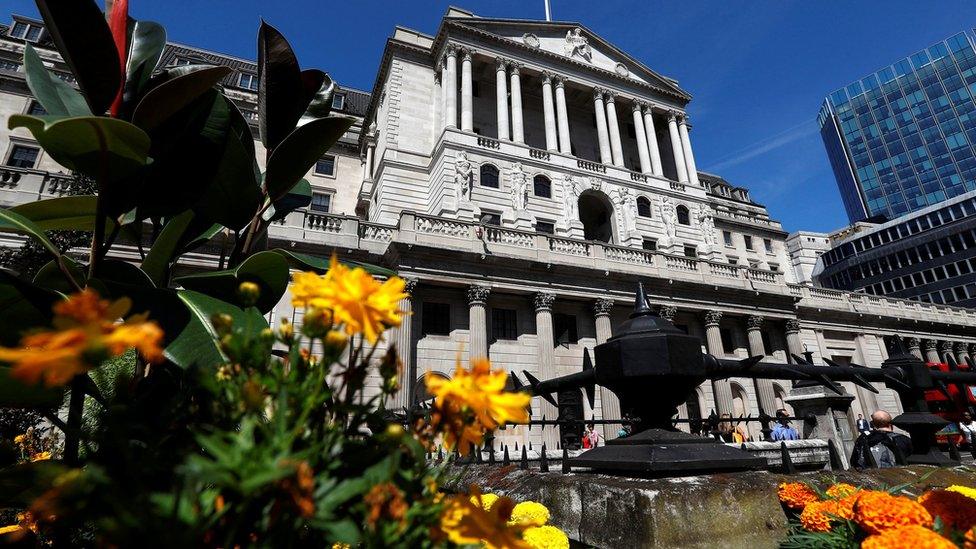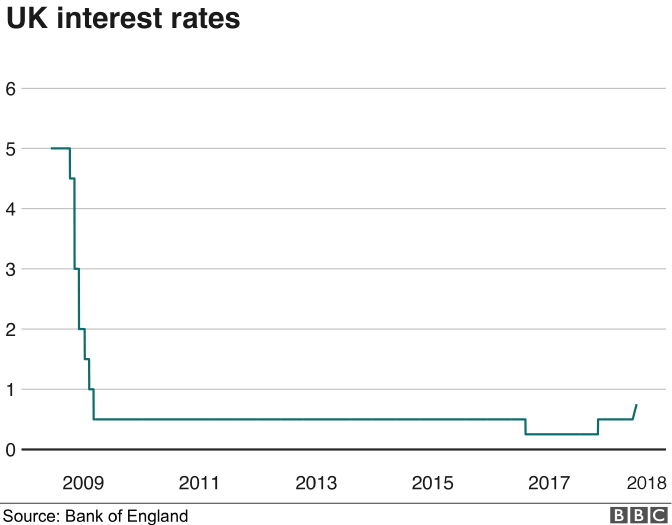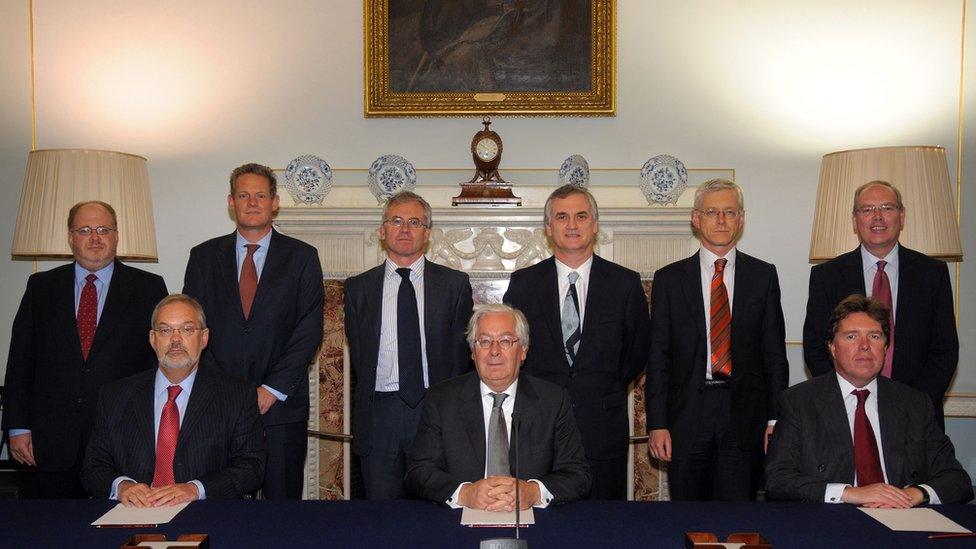Interest rates: An insider's guide to the MPC's decision making
- Published

It's decision day at the Bank of England as policymakers reveal their thinking on what level interest rates should be.
The people who make that all-important choice is a group of nine individuals who make up the Monetary Policy Committee (MPC).
Among them is the Governor of the Bank of England, Mark Carney, who chairs the committee.
Members will vote on whether to raise, cut or leave interest rates.
The conclusion of their vote will impact families and businesses across the UK, as the "base rate" set by the Bank is used as a reference point for millions of mortgages and savings accounts.
The MPC meets eight times a year in an official capacity, but also holds several other meetings to mull over charts and graphs that show how the economy is performing.
This includes a designated pre-MPC meeting, where Bank of England economists provide committee members with a snapshot of the economy a week before the interest rate decision.

Andrew Sentance, who served on the committee between 2006 and 2011, says these meetings are grand performances.
"We would be sat down theatre-style, facing an array of Bank of England staff. They would present to us various different aspects of what's been happening in the economy," he says.
"Those meetings never changed my mind however, as I followed the data closely anyhow - so nothing surprised me."
'Ostracised'
As well as economic data, the MPC is provided with reports from its regional agents. Professor David Blanchflower, who was on the committee between 2006 and 2009, says this data was crucial.
"MPC meetings were infuriating. I disagreed with everyone in the room, because I was listening and paying attention to our agents that were telling us what was happening around the country," he explains.
"The economy of the streets is so important; as economists it's our connection to the real world.
"We had 12 agents around the country that produced reports every month and gave region scores. I felt they called the recession in 2007/08. In the months before, when they presented their reports to us, I thought we should be cutting rates, but nobody else agreed. I felt ostracised."
Prof Blanchflower urges the current MPC members to be independent: "It shouldn't be a tyranny of group opinion. There are nine people on that committee, so there should be nine different opinions.
"They also shouldn't just guess how people in the country are coping - they should go out and speak to people, not just in London but Huddersfield, Bangor, Swansea as well."

Andrew Sentance (back right) and other members of the Monetary Policy Committee in 2011
The members meet a week before the vote to discuss opinions and thoughts. Policymakers at this point also agree on economic forecasts if an Inflation Report - or quarterly economic evaluation - is also due to be published.
On the Monday before the vote, officials usually hold their first policy meeting. This is transcribed and published.
Wednesday is usually voting day. The governor ordinarily puts forward a proposal on interest rates and quantitative easing he believes will win a majority.
Mr Sentence says the vote meeting is an open debate: "We're led into a typical meeting room in the Bank of England building. We sit down, and the chair of the committee - the governor - will ask for everyone to explain how they are voting, starting with the deputy governor who is in charge of monetary policy.
"He then turns to the rest of the committee, inviting them to speak in a varied order. It's meant to be a random order, but certainly when I was a member, I think the governor thought about the flow of the debate and so picked members to speak in accordance of how he thought they would vote. At the end of the meeting, the majority wins."
With nine members, there is no chance of a deadlock. However there have been circumstances where they are down a member, because one has not been appointed in time for the meeting. In those cases, the governor has the final say.
The result of the vote is published on a Thursday, along with the minutes of the meeting.
- Published1 August 2018